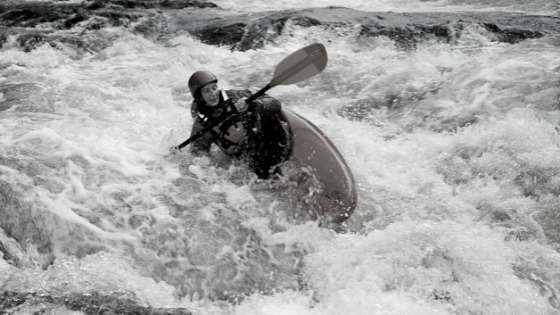We were in a canoe, paddling furiously in big rapids. Each decision had only moments, every stroke mattered. If we got the balance and timing wrong, we would tip over, and be swimming at the mercy of the dangerous current.
“Brace! Brace!” I cried to my friend in the bow.
Too late.

It’s a counter-intuitive thing to send body-weight towards the current. A brace stroke is leaning towards the water and slapping the paddle face hard against the surface to flick the canoe right-side up again, our head coming up last. Instead instinct has us scrambling to stay upright, and this only pushes the gunwale down into the water, capsizing.
The pandemic has felt like a continual run of crazy rapids. Decisions are made on a dime, and we are constantly adjusting to stay afloat. We lean away from uncertainty and end up floundering.
Making decisions is a leader’s bread and butter. Making them under endless pressure in constantly moving conditions can wear down the best of us. Here’s how to improve your decision-making leadership skills.
The first leadership responsibility is to yourself.
One of the critical shifts we need to make to move beyond chronic overwork is to maximise our energy. If we are to become Amplifiers of other people’s talents, then we need to be the current that carries us all along, even when the river runs slack in flatter ground.
Clear the decks
To set yourself up for success, clear the decks. Create some space. Cut commitments where you can. You need literal space to allow your brain to sift what’s important, what’s not.
Check your leadership mindset: are you playing victim or victor?
It’s easy to fall into a ‘woe is me’ narrative. Things really do suck. We feel out of control, stuck, with no end in sight. So face it down. All that is true.
We do not need to let it defeat us. We are in charge of our own narrative! We can create what’s next, we get to choose our attitude.
Leadership frameworks for the hard decisions
I’ve written previously about surviving difficult decisions and the leadership principles you need in a crisis.
There are a few decision-making filters that are useful when under pressure:
-
Does this decision match our values?
-
Have we checked and verified our assumptions?
-
What is the ripple effect of this decision? Can we live with that?
-
Are our people safe?
-
What are some possible unintended consequences of this decision?
-
What’s our next best step after this decision?
-
How can we minimise harm and promote recovery?
Sometimes we don’t have the luxury of time. An obstacle looms just under the surface we hadn’t seen or expected. We need to steady the ship, prepare to brace, and lean into it.






















